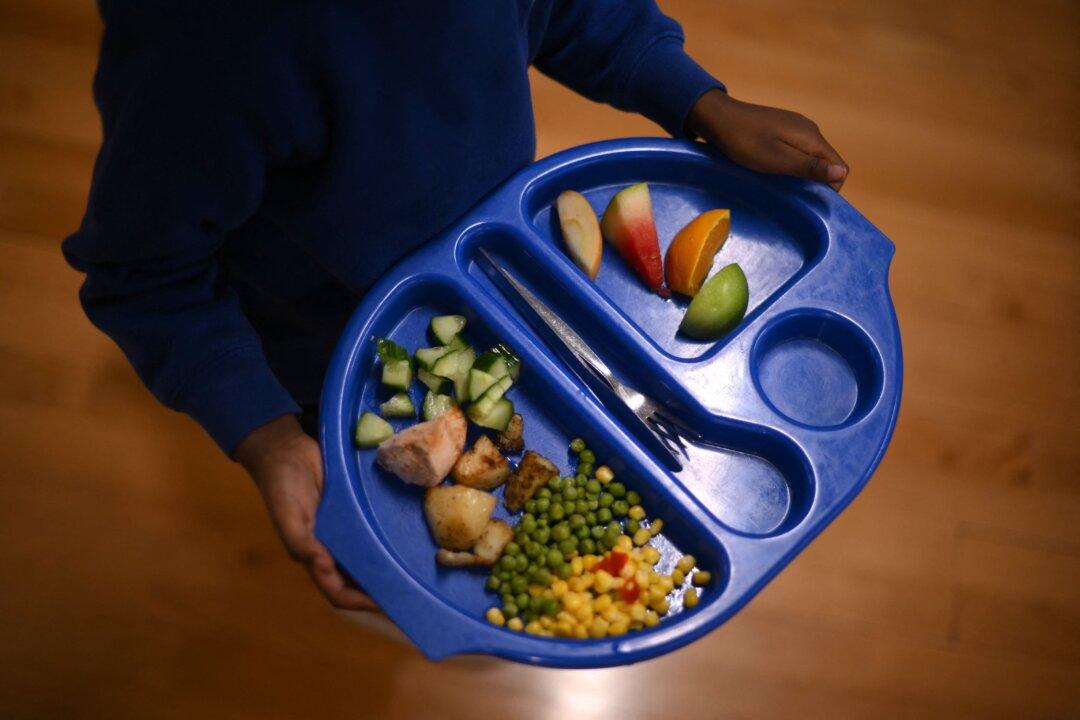More than one in four pupils in England are now eligible for free school meals, figures show.
An additional 77,700 children became eligible for free school meals over a year, according to data published by the Department for Education.
Eligibility for free school meals stood at 25.7 percent of all pupils in January this year, the equivalent of 2.17 million children—up from 24.6 percent, or 2.09 million, in January 2024, the data show.
The figures come as the government announced plans to expand free school meals to all pupils in England in families that claim universal credit from September 2026.
Currently, households in England on universal credit must earn below £7,400 a year (after tax and not including benefits) to qualify for free school meals.
The government has said the expansion will make 500,000 more children eligible for free school meals, and it will save parents nearly £500 every year.
It suggested that the change would lift 100,000 children across England out of poverty.
Charities have welcomed the expansion as a “first step” towards easing child poverty, but they urged the government to axe the two-child benefit cap.
Meanwhile, the Institute for Fiscal Studies warned the expansion would “not see anything like 100,000 children lifted out of poverty next year.”
On Thursday, Education Secretary Bridget Phillipson said ministers were “working as quickly as we can” on plans to extend free school meals.
She told Times Radio that the meals extension would be funded and the government will “make sure that schools have what they need to deliver this.”
Asked why the expansion was not coming into force now, Phillipson told “BBC Breakfast”, “We’re working as quickly as we can because we do appreciate the urgency, but we also need to work with schools to make this change happen.”
Parents have to apply for their children to receive free school meals and eligible children are not automatically enrolled.
The announcement has been largely welcomed by education leaders and campaigners, but some organisations have called for the government to go further and introduce auto-enrolment.
Arooj Shah, chairwoman of the Local Government Association’s children and young people board, said: “Councils still face data sharing and resource challenges in ensuring as many eligible children as possible receive what they are entitled to.
“Introducing automatic enrolment, using existing government data to capture all those who are entitled to free school meals, would also streamline the process and ensure as many children as possible can benefit, at a time when many families are still under financial pressure.”
Paul Whiteman, general secretary at school leaders’ union NAHT, said: “No child should ever have to go hungry due to their parents’ financial circumstances.
“Hunger affects not only children’s health and wellbeing but also their readiness to learn, and the existing very low income cap for free school meals means many children living in poverty are ineligible.
“As well as this expansion to eligibility, we would also like the government to introduce auto-enrolment so no child entitled to a free meal misses out.”






